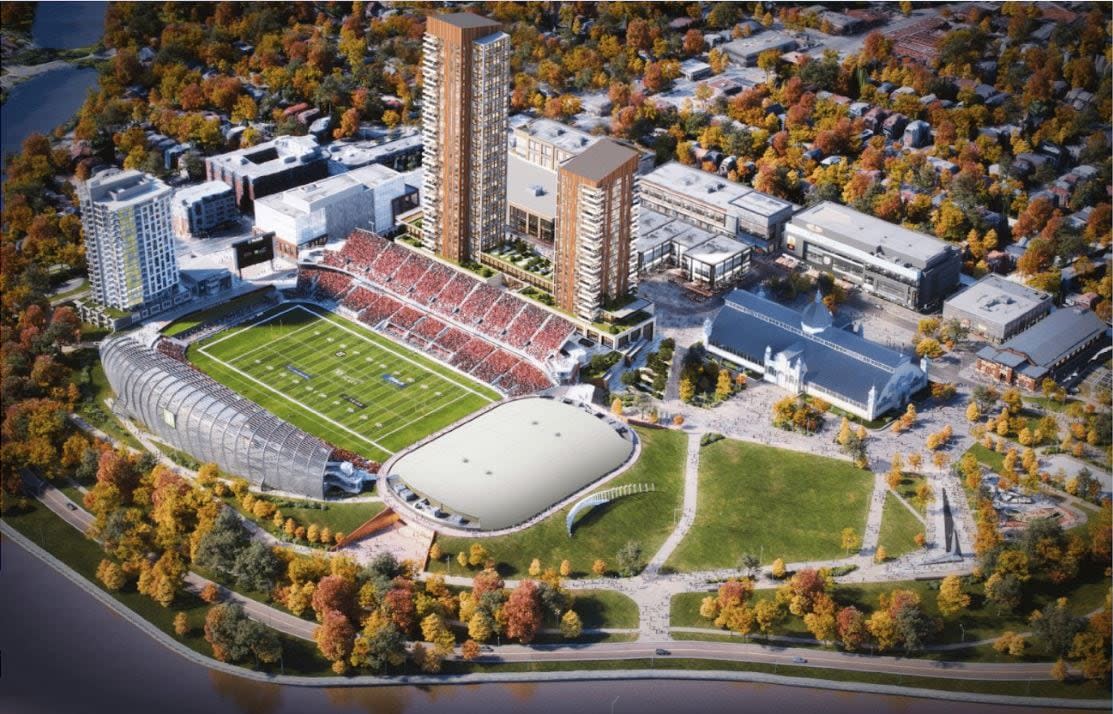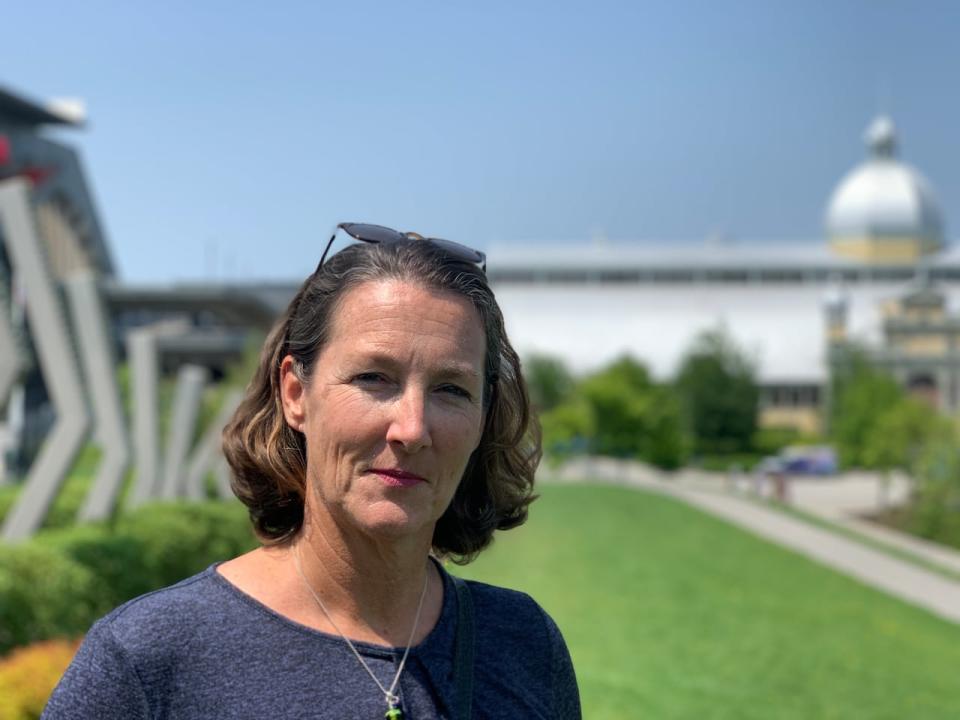Glebe community group files appeal over Lansdowne 2.0 decisions

The Glebe Community Association (GCA) has filed an official appeal over city council's approved zoning and official plan amendments for a $419-million redevelopment of Lansdowne Park with its private partner, the Ottawa Sports and Entertainment Group.
Sean Moore, the city director leading the project, sent a memo to councillors on Wednesday afternoon explaining that the appeal was received and the Ontario Land Tribunal will need to decide on the matter before the plan can come into full force.
The appeal focuses on two issues that have been in the spotlight throughout the debate over Lansdowne 2.0: the construction of a new event centre and two high-rise residential towers that would overlook the urban park.
Under the approved plan, the event centre will remove green space from the Great Lawn, including a large hill that has allowed the public to see parts of TD Place. Initial plans included a grassy dome for a roof, which councillors voted against during November's marathon debate.
"We're going to lose all of that while adding in a lot of residents to the site, which is just taking us in the wrong direction," said Carolyn Mackenzie, the planning chair of GCA.
The appeal argues that relocating the arena to the Great Lawn "is not based on good planning" and violates foundational development policies.
According to Ontario's 2020 Provincial Policy Statement, planning authorities should "promote green infrastructure to complement infrastructure" among other environmental considerations. The appeal claims there has been no discussion to replace the green spaces planned for removal.
High rise towers would detract from the neighbourhood, appeal claims
The GCA is also arguing that a pair of high-rise residential towers are "excessive" in relation to the height of other buildings in the Glebe.
The original vision for Lansdowne Park included three residential towers. After the third tower was dropped by city staff, councillors voted to add more housing units into the remaining buildings.
The city has not yet made a deal with a developer to build on the public land, but staff said the vote opened up the possibility of having both towers rise to 40 storeys.
The appeal claims the proposed towers disrupt the skyline of the existing stadium and heritage buildings, as well as nearby residential buildings ranging between 12 and 20 storeys tall.
"There is no existing or foreseeable growth plan that would see additional towers of a similar height in proximity to the proposed towers," the appeal reads.
Mackenzie said "the feel of the space" will be transformed with the towers but "not in a positive way." She referenced the potential for the towers to cast large shadows over patios and other public spaces at Lansdowne.
Another issue is added traffic. Mackenzie noted the lack of any plan to improve transportation options along Bank Street.
"We just don't feel [the proposal] is appropriately scaled for the site," she added.

Carolyn Mackenzie, the planning chair of the Glebe Community Association, says she is expecting to hear about the appeal's next steps in a few weeks. (Kate Porter/CBC)
The group also argues the plan violates the Official Plan, the overarching document that guides future development in the city, by disregarding the recommendations of the city's urban design review panel.
The independent experts recommended staggering the tower heights to improve sightlines and reduce the risk of wind tunnels.
The GCA hopes there's room to rethink the proposal, Mackenzie said. She's expecting to hear about next steps in a few weeks, but it's unclear when the Ontario Land Tribunal will decide on the issue.
Moore wrote to councillors that city solicitors are "advocating for a date at the Tribunal at the earliest availability."
City staff had anticipated the possibility of an appeal, noting it in the updated project timeline last year.
The city and OSEG hope to begin construction on the new event centre this fall, so it can be ready for the Ottawa 67's 2026/2027 season. But staff had noted that a trip to the Ontario Land Tribunal could put the timelines at risk.


